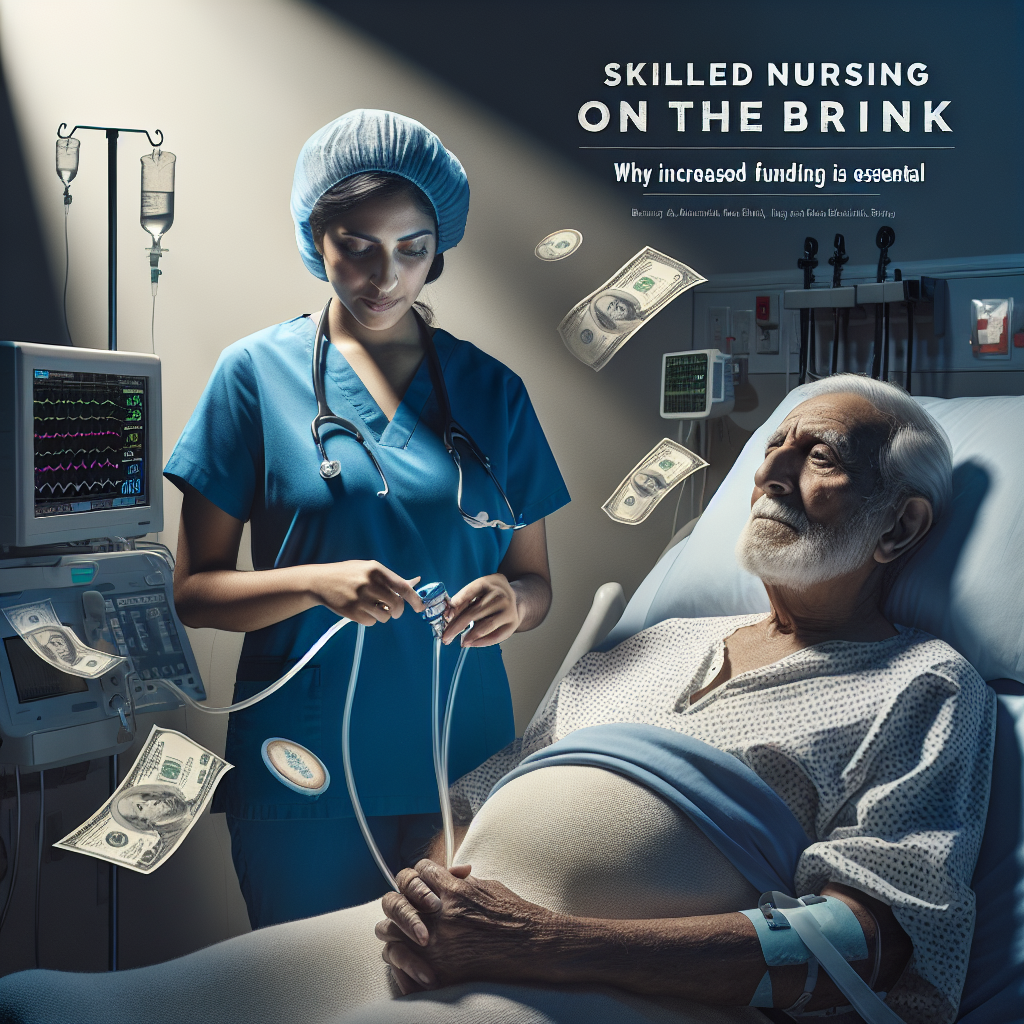New York, NY—The skilled nursing sector, a critical component of the U.S. healthcare system, is on the precipice of a crisis that threatens the care of thousands of America’s elderly and disabled populations. Industry experts and advocates are sounding the alarm, emphasizing the dire need for increased funding to mitigate an impending catastrophe that could leave the most vulnerable without essential care.
A recent report from the American Health Care Association (AHCA) highlights a startling statistic: nearly 75% of skilled nursing facilities (SNFs) are operating at a loss, with many on the brink of closing their doors permanently. “This isn’t just a wake-up call; it’s a five-alarm fire,” said Mark Parkinson, president and CEO of AHCA. “Without immediate and substantial financial intervention, we’re looking at an unprecedented collapse in care for our elderly.”
The crux of the issue lies in the disparity between the rising operational costs and the stagnant, often insufficient, reimbursements from Medicaid and Medicare. Over the last decade, the cost of providing quality care has skyrocketed due to various factors, including increased regulations, higher staffing requirements, and the rising prices of medical supplies and equipment. At the same time, reimbursement rates have not kept pace, leaving a widening gap that facilities are struggling to bridge.
The COVID-19 pandemic served to exacerbate these challenges, stretching resources thinner and underscoring the vulnerability of SNFs across the country. In addition to heightened operation costs, the sector faced unprecedented outbreaks, leading to an increased need for protective equipment and testing, further straining already tight budgets.
Experts argue that without a significant increase in funding, particularly from federal and state governments, the consequences could be devastating. The potential closure of numerous SNFs would not only leave thousands of elderly and disabled individuals without necessary care but would also place an untenable burden on hospitals and other healthcare facilities ill-equipped to provide long-term care.
Solutions proposed by industry stakeholders include a restructuring of the Medicaid reimbursement model to more accurately reflect the true costs of care, along with increased Medicare support for post-acute care services. Furthermore, there is a call for targeted government support to help facilities manage the financial challenges posed by the COVID-19 pandemic, such as grants or forgivable loans.
As the debate over healthcare funding continues, the fate of skilled nursing facilities—and the millions of Americans who rely on their services—hangs in the balance. The call for action is clear: without immediate and significant financial support, the skilled nursing sector may face a wave of closures that could have far-reaching impacts on the healthcare system at large. As Parkinson succinctly puts it, “It’s not just an industry issue; it’s a societal one. We must act now to protect our most vulnerable before it’s too late.”


